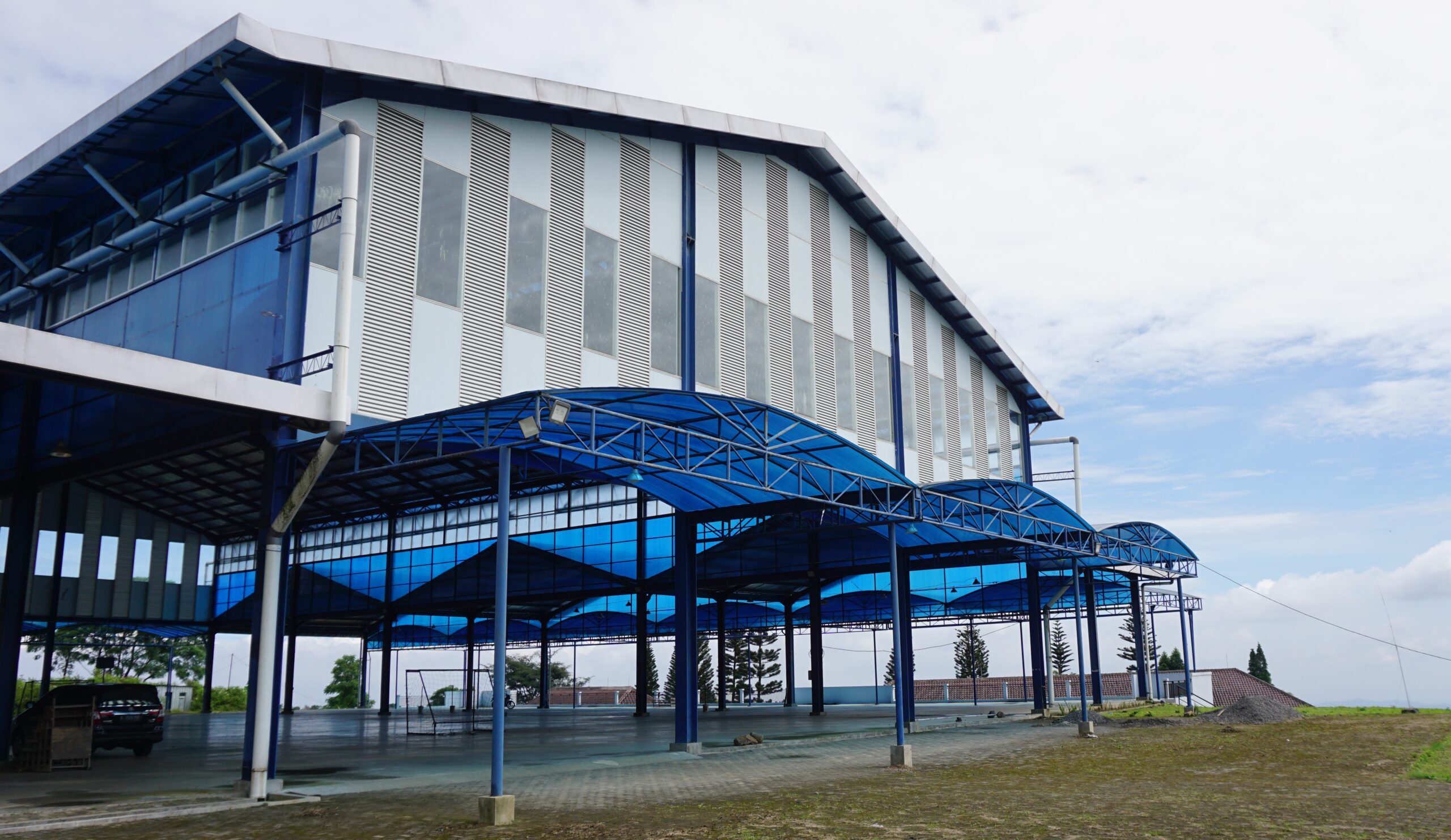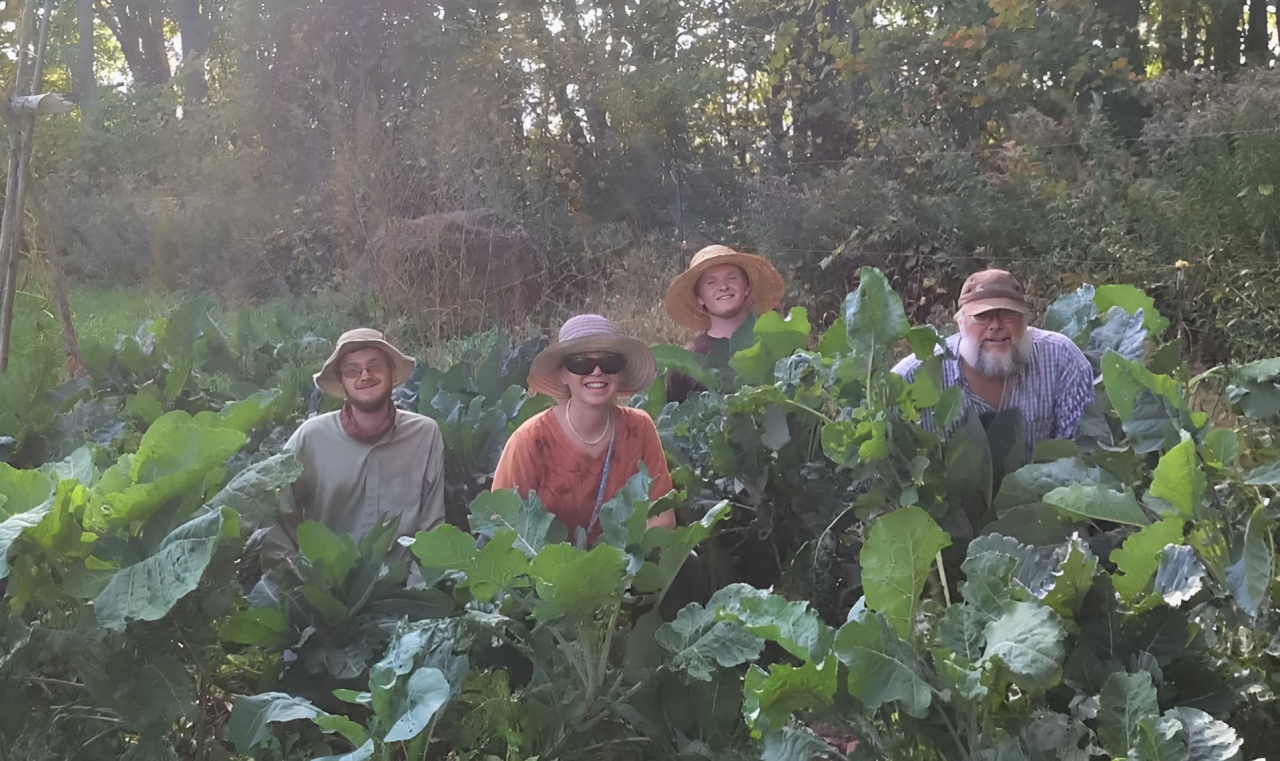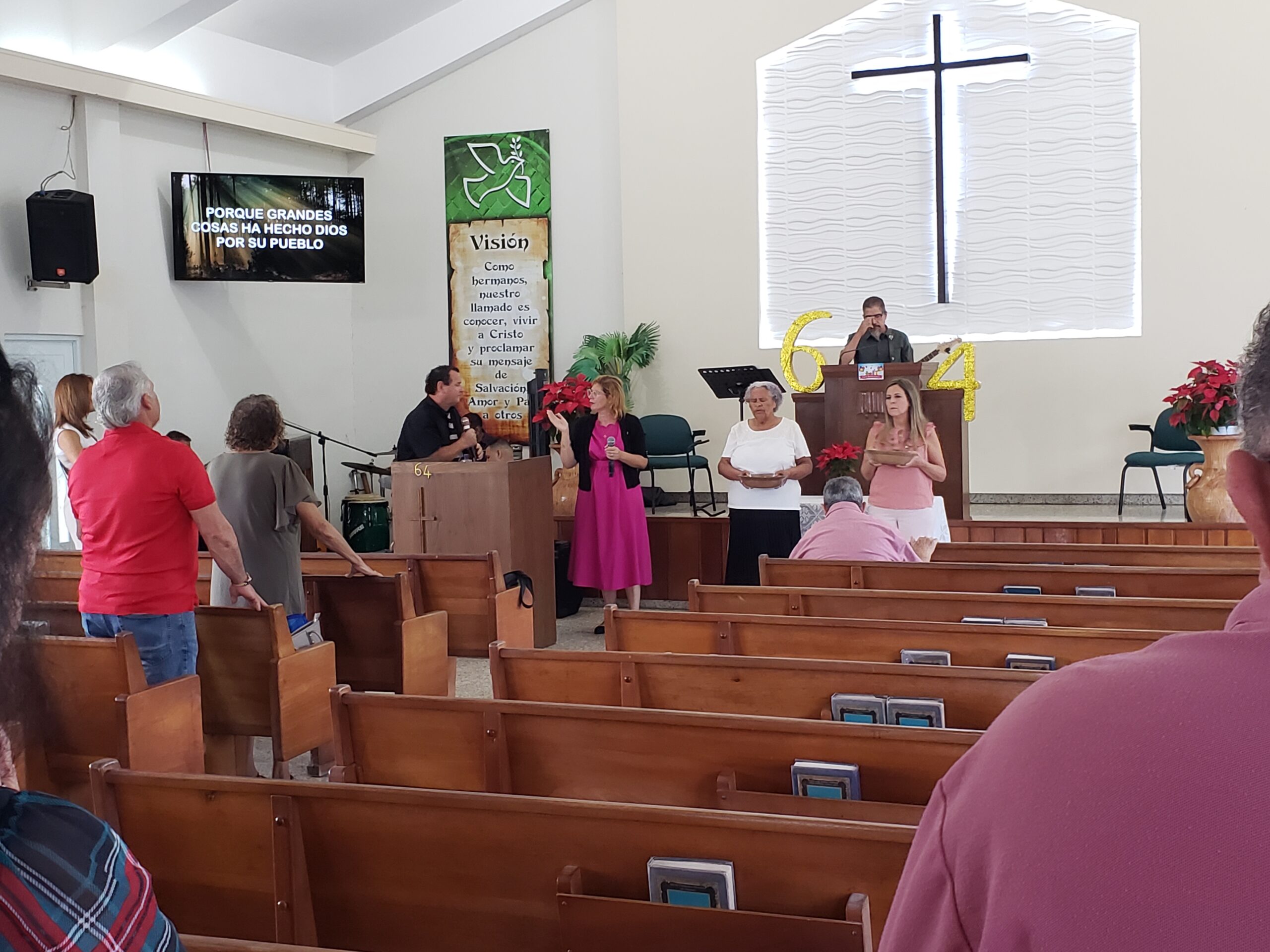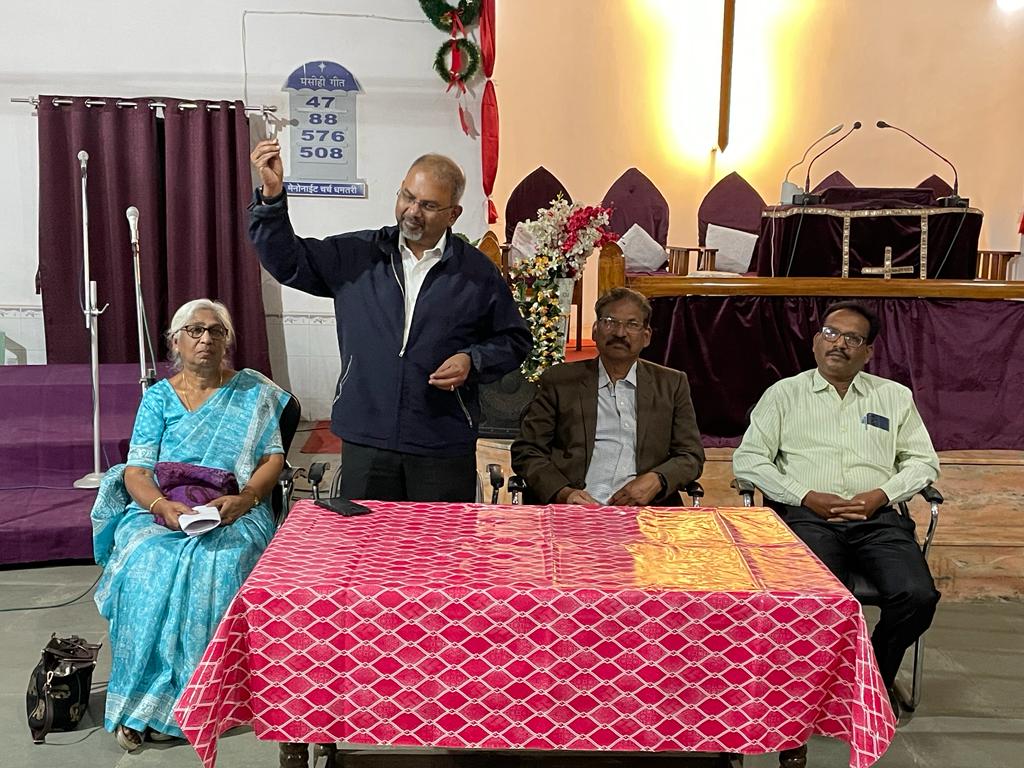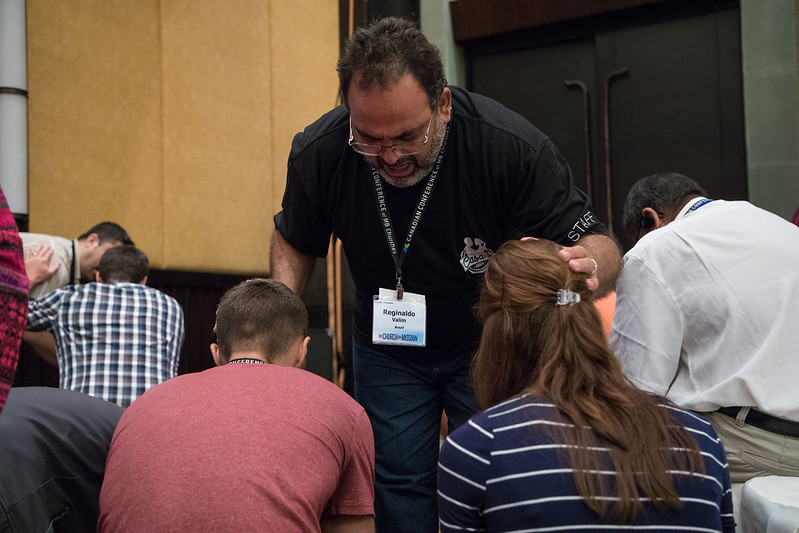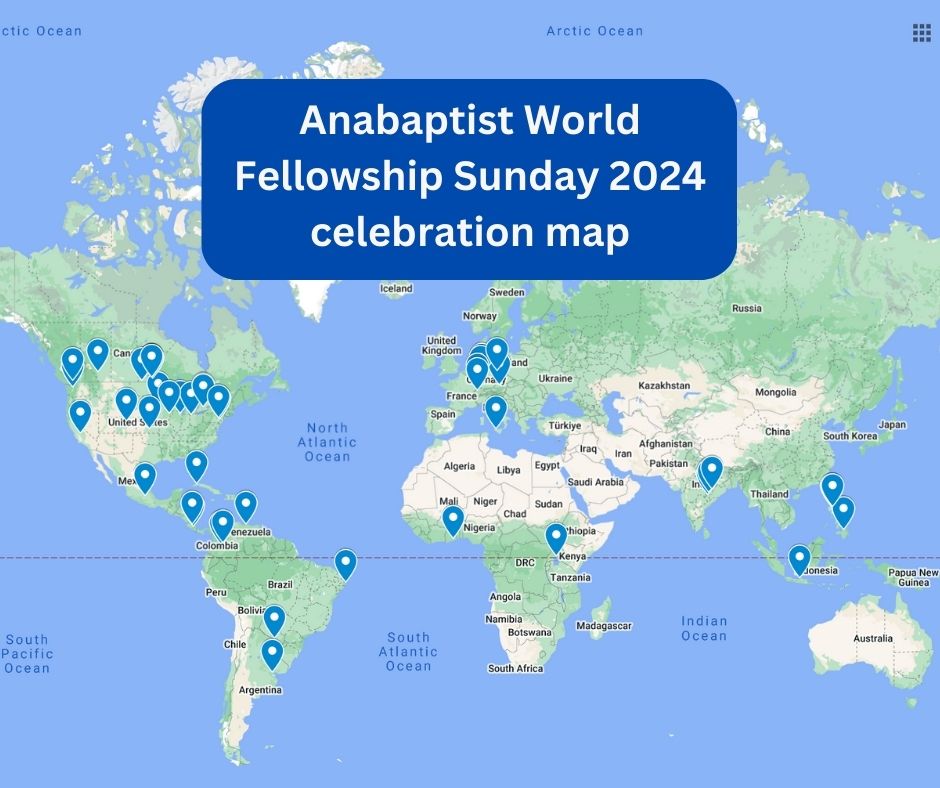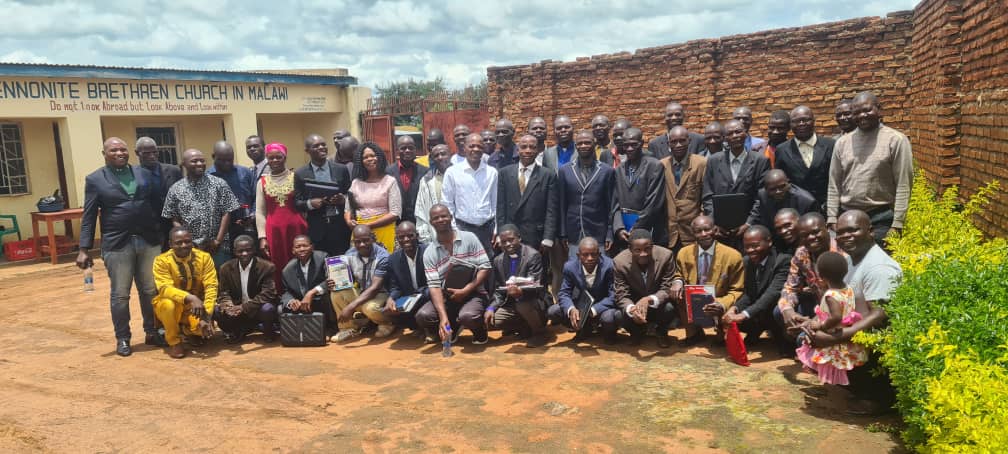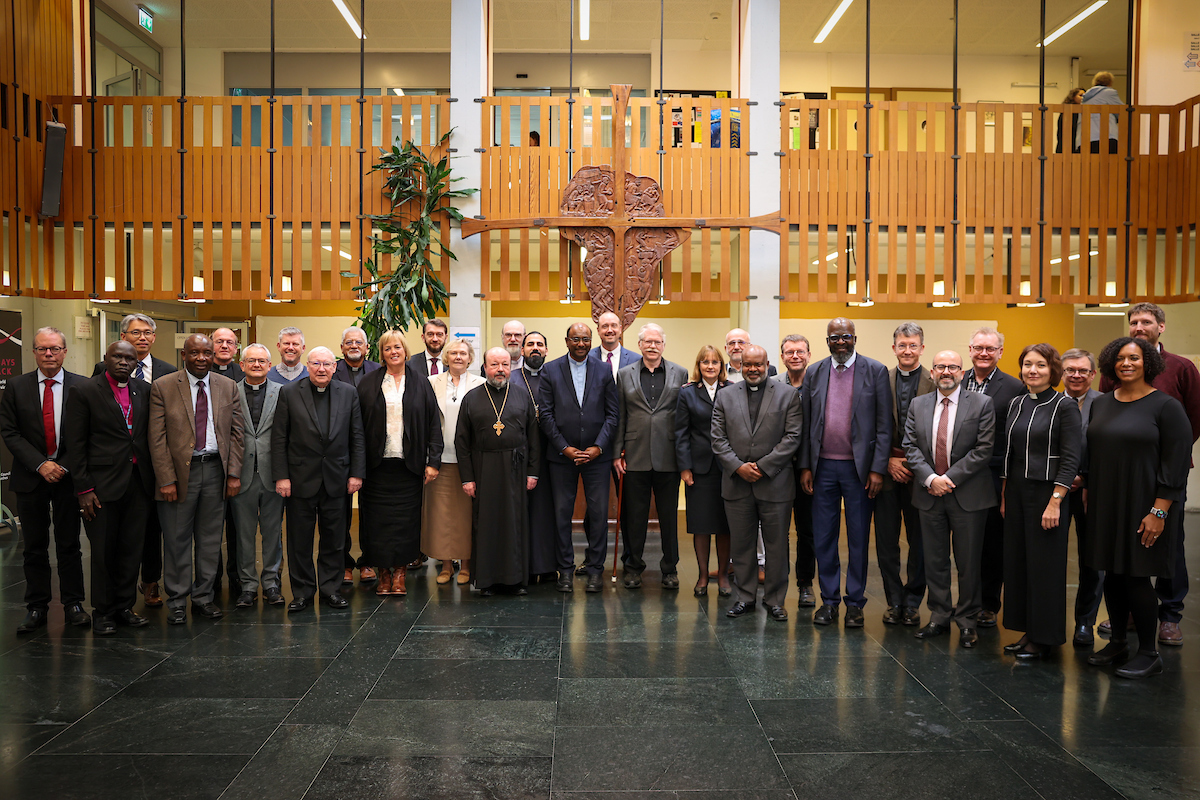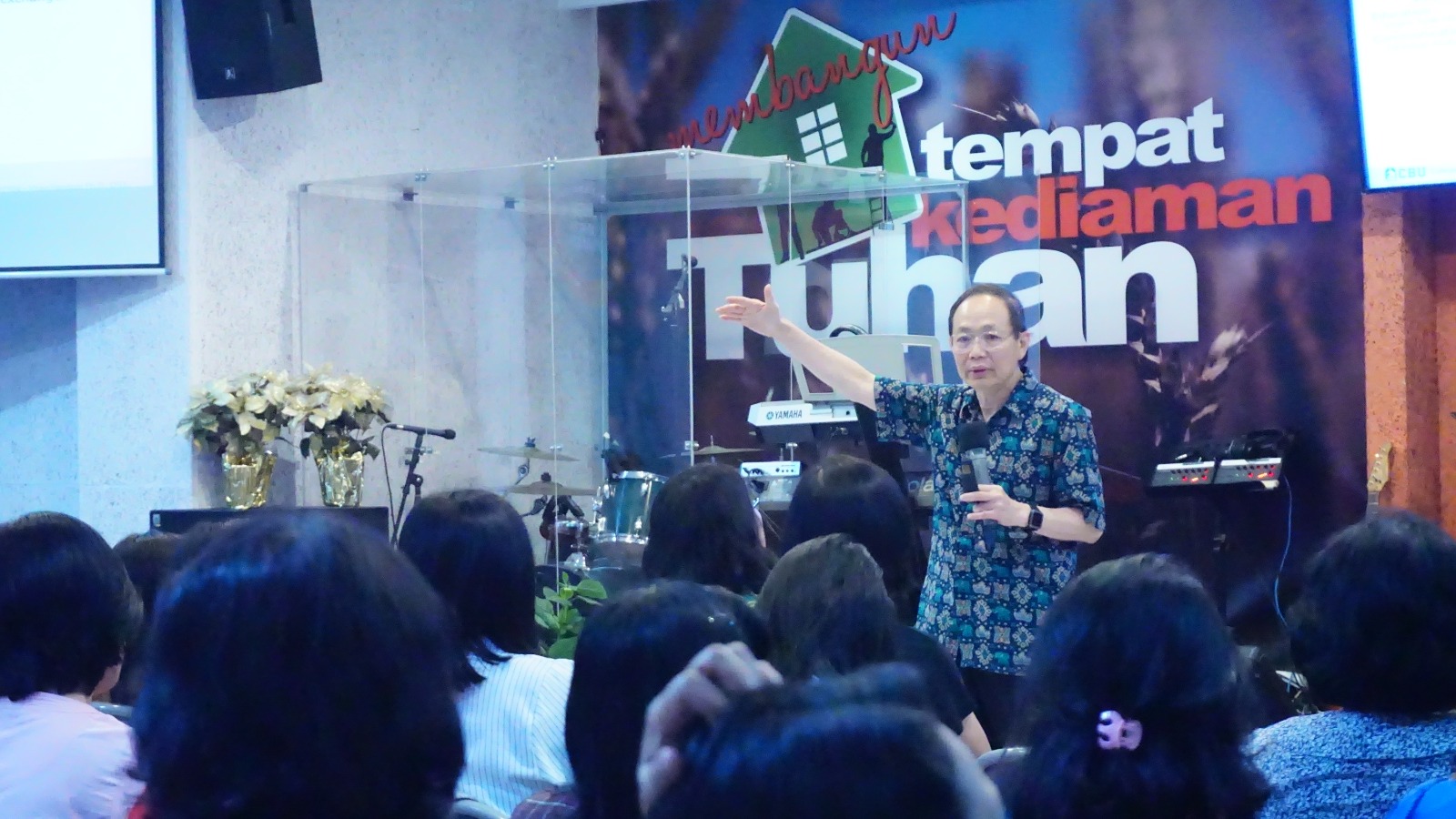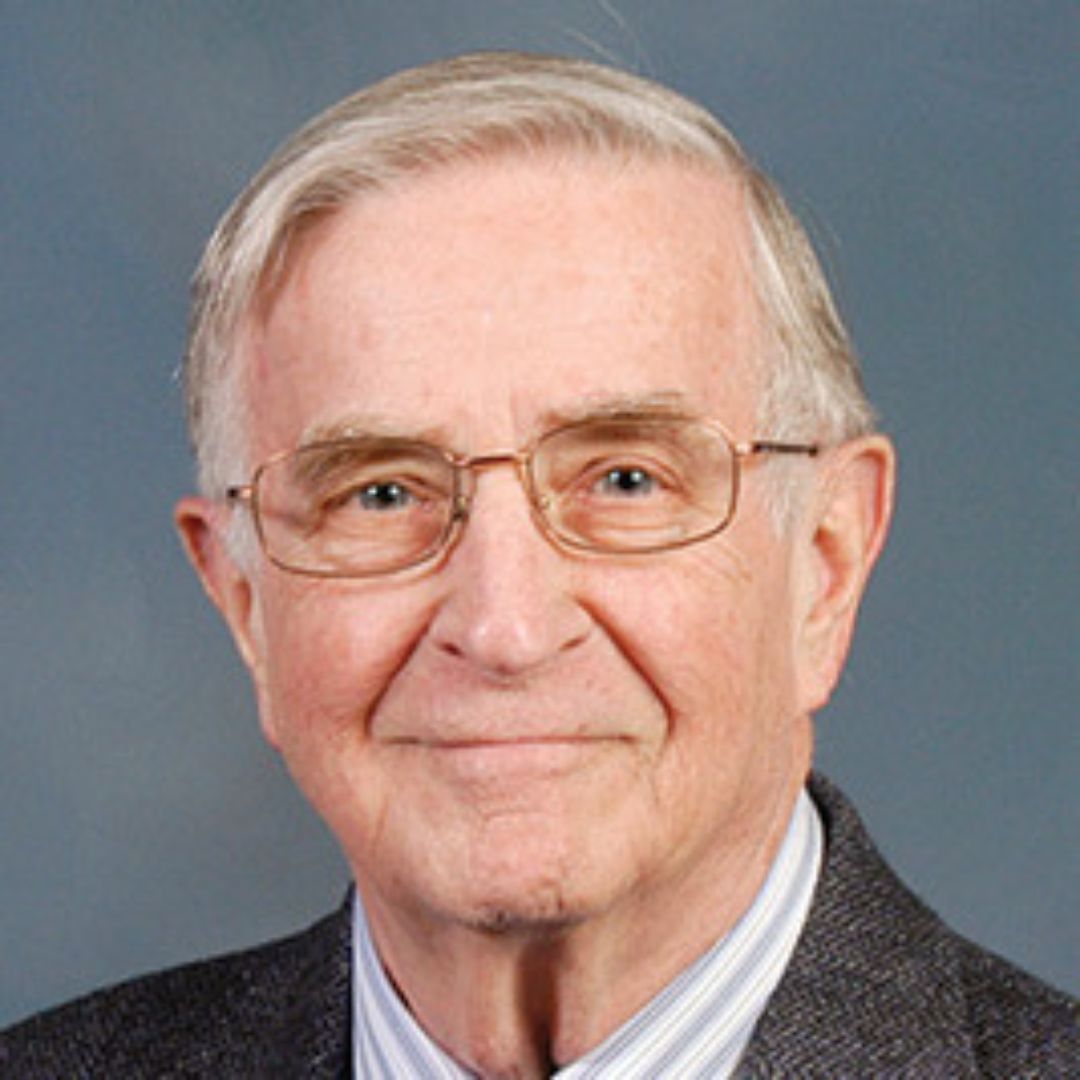-
Equipping future church leaders
As a generation of experienced pastor enters retirement age, many churches around the world are seeing a shortage of trained leaders. Pastoral candidates who have studied Anabaptist theology are even more rare. However, the three Anabaptist-Mennonite synods in Indonesia have proactive strategies to equip future leaders. GKMI “Pastors, teachers and evangelists retire at some point,…
-
We will continue to pray
“Praise God we had a meaningful prayer time for unity of Spirit to pray for suffering and bleeding humanity. May God have mercy over this world. We will continue pray for shared points,” says participant Rechal Bagh.
-
Striving for integrity
Andre Wiederkehr, of Ontario, Canada, doesn’t have a driver’s license. That’s because he chooses not to use fossil fuels to get around. Without using a car, attending Hanover Mennonite Church on Sundays means riding 21 kilometers by bike. “None of us is really an enthusiastic biker,” says Andre Wiederkehr, who lives on a farm with…
-
Isolated churches seek connection
“We are here to walk together as churches so we can help each other follow Jesus,” says Arli Klassen, MWC regional representatives coordinator. She gave that message as she visited the five Caribbean countries with MWC member churches in November 2023. An in-person visit creates space to develop a real relationship, with time for the…
-
From division to unification
India A brief description of the journey of the Bharatiya General Conference Mennonite Church from the darkness of the 7-year period of division to the light of unification. The division and reunification of the Bharatiya General Conference Mennonite Church were marked by a series of events and challenges. The initial division was caused by a…
-
A jar of clay in God’s hands
Brazil Sometimes, it’s not an option to discuss difficult topics. Conflicts arise, but we can build something new instead of shattering the old. In 2011, the Mennonite Brethren church in Brazil (COBIM) faced difficult conversations. God had brought leaders from other denominations into COBIM. Now we had to learn how to handle these differences. The…
-
AWFS 2024 Celebration Map
Add your pin to the celebration map “Dalam Yesus Kita Bersaudara…” In Jesus Christ, we are one family. Will you celebrate with us? Anabaptist World Fellowship Sunday is an opportunity to remind our communities of faith that we are all part of one body made up of many tribes, languages and nations (Revelation 7:9). …
-
The gospel with two hands: physical and spiritual development
Malawi “I am Yao,” says Madalistso Blessings Kaputa. That people group is regarded to be Muslim in Malawi. “Someone has reached me.” Chewa, Yao, Lome (major people groups in Malawi): they can all be part and parcel of this family of God, he says. As a Yao, he is able to represent the church in…
-
Less rain, less shade, more people
January to April is the rainy season in Guayaquil, a port city on the coast of Ecuador. But this past year, says Sara Noemi Viteri Moreno, a member of Iglesia Jesus el Buen Pastor (Jesus the good shepherd, a Mennonite church) in Guayaquil, it hardly rained at all.
-
Gathering of world communions focuses on God’s work
The Conference of Secretaries of Christian World Communions met at the Ecumenical Institute of the World Council of Churches at Bossey, Switzerland, from 30 October-3 November 2023. To foster mutual understanding and familiarize participants with each other’s areas of work, each communion presented a report. Morning and evening prayers reflected on ongoing wars and violent…
-
Celebrating God’s presence this Christmas
From wars to climate disasters and slower-than-expected economic recovery post-pandemic, 2023 has been a challenging year. As we navigate through these world events and ponder their impact on our lives, Christmas approaches. How do we embrace the impending festivities – the dinners, the church plays, the festive decorations – when the world around us seems…
-
In Memoriam: John A. Lapp (1933-2023)
Mennonite World Conference mourns the loss of John A. Lapp, who died on Tuesday, 7 December 2023, at 90 years of age. John A. Lapp was coordinator and co-editor of MWC’s Global Mennonite History Series. From 1997 to 2012, he and C. Arnold Snyder documented the planting and growth of Anabaptist-Mennonite churches in the world.…
